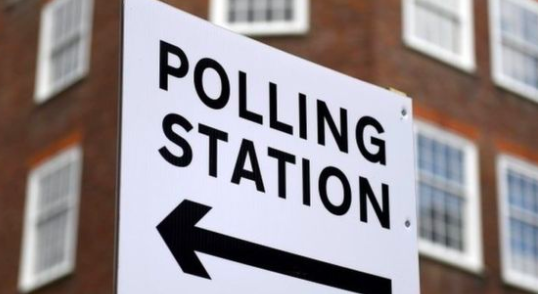In a bid to break Brexit’s three-year deadlock over British politics, the UK will head to the polls on 12 December, as Parliament delivers the nation’s first ‘Christmas Election’ since 1923.
How do bookmakers assess a General Election of multiple variables, divided constituencies, seasonal factors and fractured parties… SBC gets the bookies lowdown!
________________________

SBC: For the Conservative Party to secure a majority, they will have to flip Labour ‘heartland constituencies’ in the Midlands and North, whilst facing likely wipeouts in Scotland and London… Should a ‘Conservative majority outcome’ be leading betting markets?
A Conservative majority is only at two percent more likely than no overall majority at 46%, according to our market. This reflects the new reality of the revitalised Liberal Democrats, a more active SNP and the unknown Brexit Party who are now in the mix meaning that anything can happen.’

SBC: The first Christmas Election since 1923, how will Xmas factors impact campaigning… Does the Xmas hungover favour Labour or the Tories?
Matt Shaddick (Head of Ladbrokes Politics): There’s a little bit of evidence that turnout goes down during the winter, but I’m not expecting that to make any difference, and most of the bets we’ve taken so far have been for turnout to be over 70%, which hasn’t happened since 1997.
The question of whether students will be in the right place to vote also seems to be a red herring, as political science boffins have demonstrated it barely has any effect.
It might make it a bit more difficult for the parties’ on-line advertising campaigns, as I guess everything becomes more expensive once you have to compete with all the normal brands buying Christmas related space. Perhaps that favours Labour, who have more capacity to run people-led campaigns on the ground, but I’m a bit sceptical as to whether any of this stuff really hands any side a particular advantage.
SBC: A do-or-die PM Johnson will make no compromise in his campaigning, seeking a Tory majority for his version Brexit. Is this Snap Election, therefore a ‘vote on Boris’ rather than a ‘vote on Brexit’?

Katie Baylis (UK/Euro PR Manager – Betfair ): “This election may be billed as the Brexit election but really it’s going to be a big indication of what the country thinks about Boris. He’s called it to increase the Tories’ majority, just like Theresa May did two years ago and clearly that did not go to plan. If that happens to the current PM then it will be very hard for him to stick around.
Currently, it’s almost 50/50 odds-wise on Betfair Exchange between a Tory majority and No Majority so punters clearly think they have a lot of work to do, with a number of key seats likely to decide the outcome. A Labour/Lib Dem/SNP coalition is currently at odds of 10/1 so it’s not simply a case of defeating Labour, but the opposition parties on the whole. It’s going to be a very busy time of intense campaigning over the next few weeks for the Tories and in particular, their leader and it will be interesting to see whether the Dominic Cummings factor comes into play as well.”

SBC: The Brexit Party makes its GE debut. Are Nigel Farage’s new gang a bigger threat to Tory or Labour campaigning?
Joe Lee (Head of GB & IRE -Paddy Power): We finally have the December election that nobody really wanted, isn’t that right Boris? But the PM’s mantra for some time has been “Get Brexit Done” and this may be his yellow brick road (or ditch) to rid himself of the parliamentary deadlock that has been getting Brexit anything but done.
With a Conservative majority trading a shade of odds on they’re going to be attacked from all sides, including from Farage’s latest bandwagon – there have already been reports of Tory MP’s asking Brexit Party representatives not to stand against them in the event of splintering votes which ultimately have the same aim.
Right now the Brexit Party are favoured not to win a seat (PP 8/11) despite being favoured to have 10-15% of the overall vote (reinforcing the challenges that arise when faced with a first past the post system). Their gains definitely appear to be forecast more at the expense of Corbynites than others with Labour seats looking to drop something in line with the 30 they gained in 2017. Also waiting in the wings are the Lib Dems who will also make gains, most likely also at the expense of Labour, with their seats total potentially breaking the 30 mark.

SBC: Mirroring UK 2017 events Labour starts its campaign being served its longest election odds. Has Jeremy Corbyn been underestimated again and can he survive another ‘glorious defeat’?
Phil Fairclough (Multi Sports Product Owner @ Sporting Index): In 2017, the Tories, holding a working majority of 17 faced an election with huge confidence in retaining their majority. Initial polls suggested Conservatives had a 21 point lead but over the course of the electoral campaign saw this diminish and Labour successfully gained 30 seats from 2015 with a vote share of 40%.
Now in 2019 we have seen yet another change in PM and a succession of ebbs and flows on both Conservative and Labour voting intention in the Polls. Over recent weeks there has been a resurgence in Conservative polling due to Boris Johnson’s stance on delivering Brexit but is the tide about to turn? Jeremy Corbyn has successfully overcome a vote of no confidence from within his Party, made gains in a previous General Election and were successful in local elections.
It would not be prudent for Corbyn to be under-estimated but much of it depends on how the Labour campaign is fought. What they do not have on side is the timing of the election. There is no evidence that a December election will have a negative effect on turnout but where Labour’s campaign may come unstuck is that people are less likely to open their doors to campaigners, given the dark nights. Given that the Labour campaign relies heavily on door knocking I see this as a detriment to their campaign team.
Labour do have one or two moves to make. They could include the fight for the cause of the 1950’s WASPI women, aiming to claw back some of their lost pension. There are about 3.8 million votes up for grabs here alone and would certainly be seen as a vote winner in previous strong Labour seats where Labour may lose votes to the Brexit Party. They should also look to focus their mandate worker’s rights – I’m sure a 4-day working week would be seen as popular amongst many in the electorate!









